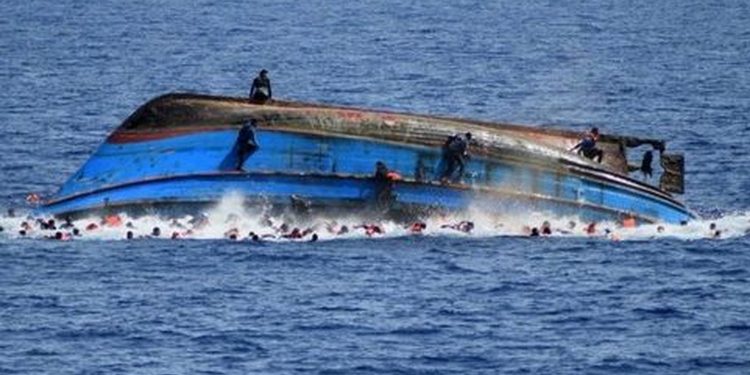A heartbreaking maritime disaster has unfolded off the coast of Djibouti, where more than 100 migrants have gone missing after being forced into the sea. This incident, which has drawn international attention, underscores the ongoing crisis surrounding migration in the region, particularly from the Horn of Africa to Europe. Witness accounts and reports from humanitarian organizations reveal that the migrants were likely fleeing dire conditions in their home countries, only to face a perilous situation at sea.
On the morning of March 12, witnesses reported seeing a boat filled with migrants being intercepted by armed men while navigating the waters near Djibouti. Eyewitnesses recounted how these men forcibly removed the passengers from the vessel, pushing them into the choppy waters. The exact motivations behind this act remain unclear, but it is suspected that human traffickers were attempting to rid themselves of the migrants, who were reportedly attempting to reach Yemen as part of a longer journey to seek asylum in Europe.
The Djibouti coast is known as a significant transit point for migrants from various countries, including Ethiopia, Somalia, and Sudan. These individuals often embark on treacherous journeys in search of better opportunities or to escape conflict, poverty, and political instability in their home nations. According to the International Organization for Migration (IOM), over 200,000 migrants have traversed this perilous route in recent years, with many falling victim to exploitation, abuse, and neglect.
Local authorities, alongside international organizations, have launched a search and rescue operation to locate the missing migrants. However, the conditions at sea have posed significant challenges, including rough waters and adverse weather conditions. Search efforts have been complicated by the ongoing conflict in Yemen, which has led to increased migration as individuals attempt to escape the dire humanitarian situation.
The United Nations has expressed grave concern over the safety of migrants in the region and has called for urgent action to address the issue. In a statement, a UN spokesperson emphasized the need for a comprehensive approach to tackle the root causes of migration, stating, “We must address the conditions that force people to embark on these dangerous journeys in the first place. Without meaningful change, more lives will be lost.”
Humanitarian organizations have reiterated the importance of protecting migrants and providing them with safe passages. Many migrants are unaware of the dangers they face, often relying on smugglers who promise safe transport but expose them to life-threatening situations. The recent incident has sparked renewed calls for governments and international bodies to take action to improve the safety and rights of migrants, including providing legal pathways for those seeking asylum.
This incident is not an isolated event; it reflects a broader trend of increasing dangers faced by migrants globally. In recent years, the Mediterranean Sea has seen a rise in fatalities as desperate individuals attempt to reach Europe. Similarly, the situation in the Gulf of Aden and the Red Sea has become increasingly perilous, with reports of migrant boats capsizing or being forcibly sunk by traffickers.
The plight of migrants often goes unnoticed, but their stories reveal the human cost of a broken system. Many of those who attempt to make the journey are driven by a desperate need for safety and stability. As the international community grapples with how to respond to the ongoing migration crisis, the tragic events off the Djibouti coast serve as a sobering reminder of the urgent need for action.
In the wake of this tragedy, advocacy groups are urging nations to come together to find solutions that prioritize the protection of migrants. This includes increasing funding for humanitarian programs, improving border management, and enhancing legal pathways for migration. Without a concerted effort to address the challenges facing migrants, the cycle of despair and tragedy is likely to continue.
As the search for the missing migrants continues, the hope remains that some may yet be found alive. However, the grim reality is that many may never be accounted for, leaving families and communities to mourn the loss of their loved ones. The stories of these individuals must not be forgotten, and their struggle for safety and dignity must remain at the forefront of the global conversation surrounding migration.
The Djibouti incident serves as a critical turning point in how the world views and addresses the migration crisis. It is a call to action for governments, humanitarian organizations, and the global community to take meaningful steps toward ensuring the safety and rights of all migrants, regardless of their circumstances. As long as there are individuals willing to risk everything for a better life, it is imperative that the international community responds with compassion, understanding, and a commitment to protecting those most vulnerable.
